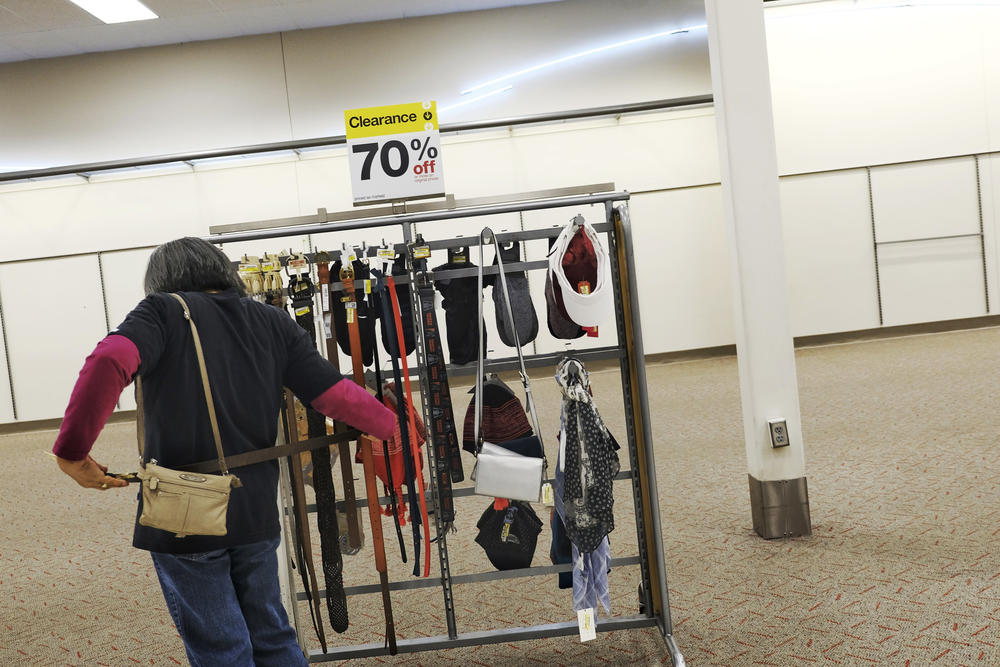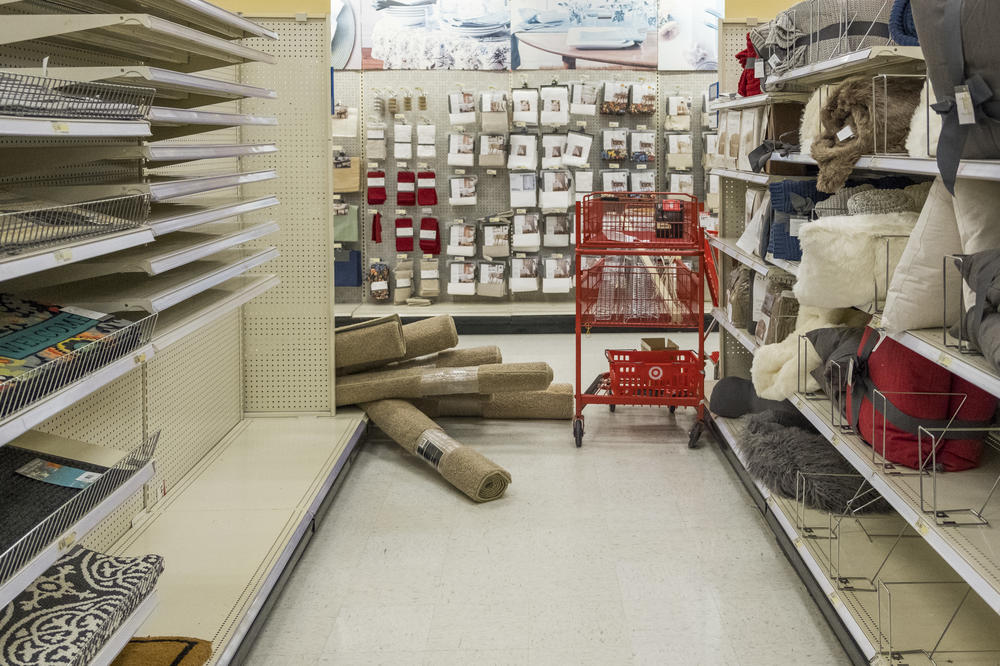Section Branding
Header Content
Why Is Macon Losing Big Box Stores?
Primary Content
Why Is Macon Losing Big Box Stores?
Macon’s Target store is closed. When Target announced it was closing a dozen stores across the country, people in Macon were disappointed to learn the Presidential Parkway store on the was on the list.
If there was an upshot, it was the going out of business sale. That’s how Robert and Mikieoel Revels loaded up with the children’s clothes they had when they left the store a few weeks before it closed with their son Noah. Though they were happy for the bargains, Robert Revels said he wasn’t happy to lose the store.
“I guess in this location it's not a lot of good quality stores on this side of town,” he said.
So why is Macon losing big box stores? That’s something many of you asked us recently in our Just Curious project. Allen Lynch, an associate professor of economics at Mercer University, wants you to know Macon is not alone.
“It's kind of depressing to see empty store space, it really is. And Macon has its share of that,” Lynch said. “Every city does.”
And it’s not just Target. Lynch pointed out that Kmart is gone, too. They’ve closed 358 stores nationwide. But Lynch said even as Macon is in the mainstream of this retail trend, the city has some unique challenges. Imagine the city has one big wallet.
“The household income in Macon is about $36,000 where the national household income is about $50,000,” Lynch said.
That leaves Macon’s wallet about 25% lighter than the nation’s as a whole.
Then there’s the rate of poverty. Lynch said nationally the poverty rate is about 14 percent. In Macon? It’s 27 percent, almost twice as high. Lynch said these are problems because retail stores don’t set regional prices for their goods.
“At the end of the day the price of a pair of Levis is probably about the same in Macon as it would be in Atlanta,” he said.
That’s a tough environment for retailers. Lynch said there’s one more nationwide, if not international, headwind at work.
“The e-commerce space has grown dramatically,” he said, “If you look at Amazon's sales over the last five years they've more than doubled from about 60 billion to 135 billion dollars and that growth is expected to continue.”
So where Dick’s Sporting Goods could just pick up and move from their old home just down from Target to a new part of town a few years ago, these days maintaining physical retail space is a lot harder. It’s not about moving to greener pastures, it’s about finding a pasture at all. Lynch said dollar stores buck the trend by sprinkling small shops with inexpensive goods into neighborhoods where transportation to get to remaining stores, money and access to online retailers is lacking.
So where will Robert and Mikieoel Revels buy their next big haul of children’s clothes?
“Basically a lot of stuff is going to be online,” Mikieoel Revels said. “It's a lot cheaper.”
So what do you want to know? Drop your question into our Just Curious project past the link. http://bit.ly/Just_Curious



